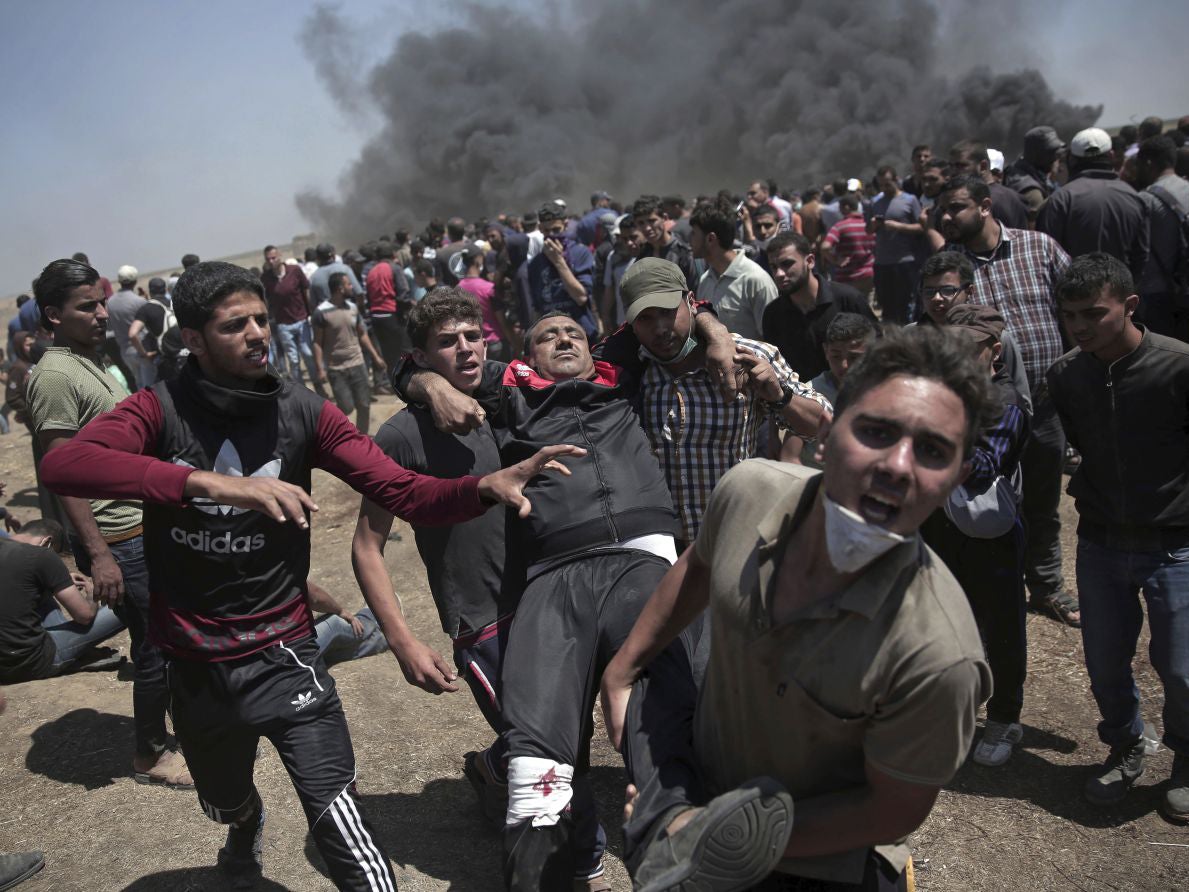International Red Cross dispatches war surgeons to help Gaza cope with protest casualties
Caseload of 1,350 complex cases and 13,000 injured total would ‘overwhelm any healthcare system in the world’, director says

The International Committee of the Red Cross (ICRC) has said it is dispatching two teams of conflict and trauma surgeons to the Gaza Strip to help deal with the “massive” care needs and mounting numbers of casualties from weeks of violent protests.
At least 116 Palestinians have been killed by Israeli troops and 13,000 injured in clashes on the Gaza-Israel border since March in demonstrations against Gaza’s deteriorating living standards and the US’ decision to move its embassy from Tel Aviv to the contested city of Jerusalem.
“The recent demonstrations and violence that took place along the Gaza border… have triggered a health crisis of unprecedented magnitude in this part of the world,” ICRC director Robert Mardini told reporters at a news conference in Geneva on Thursday.
Some 60 per cent of those seriously injured have been shot in the legs and need intense physical therapy to recover. Thirty-two people have had their limbs amputated, Gaza’s health ministry has said. Medics fear many people will end up permanently disabled.
“Our priority now clearly is to help gunshot wound victims. Imagine, 1,350 people with complex cases who will need three to five operations each, a total of 4,000 surgeries, half of which will be carried out by ICRC teams,” he said.
“I think such a caseload would overwhelm any health system in the world, including in Geneva.”
The ICRC is setting up a 50-bed surgical unit at al Shifa Hospital in Gaza city, the biggest medical facility for the Strip’s some two million residents, for the next six months.
It is hoped the extra doctors, equipment and medicines will ease the strain on the Palestinian enclave’s already crumbling health system.
A convoluted permit system and a decade-old Israeli blockade on the Gaza Strip since militant Hamas seized control in 2007 means that it is difficult for Palestinians to leave Gaza for medical treatment elsewhere – and hospitals receive inadequate supplies and equipment.
A 2017 UN report found that goods shortages combined with dual electricity and water crises and a collapsed economy has made the Gaza Strip “unliveable”.
Both Israel and the West Bank’s Palestinian Authority have been accused of escalating the humanitarian crisis in order to weaken Hamas’s grip on the territory.
Gaza is “suffocating”. Mr Mardini said, likening the area to a “sinking ship”.
Tensions between Hamas and Israel are running higher than at any point in the last four years after two months of border protests, and this week, the most significant exchange of fire between the two sides since the 2014 summer war.
On Tuesday Hamas and the smaller Islamic Jihad launched its biggest barrage of mortars and rockets on communities in southern Israel since the last round of conflict, saying it was retaliation for the deaths of Palestinians in the border protests.
Israel responded by hitting around 50 military targets inside the Gaza Strip.
No casualties were reported on either side.
A de facto ceasefire went into effect on Wednesday.
Reuters contributed to this report
Join our commenting forum
Join thought-provoking conversations, follow other Independent readers and see their replies
Comments